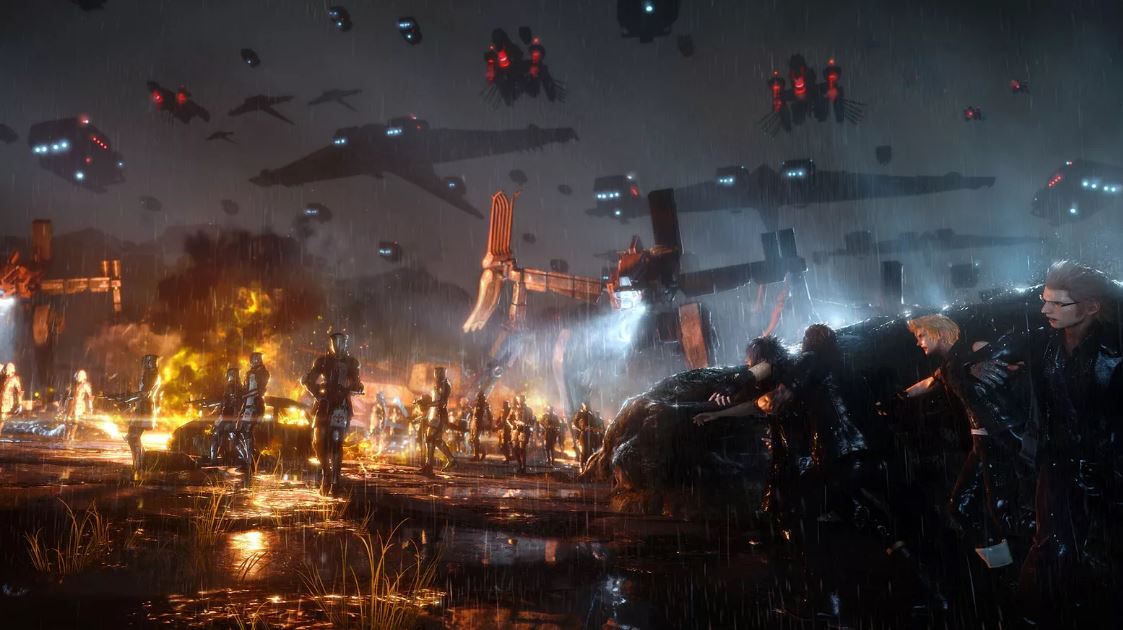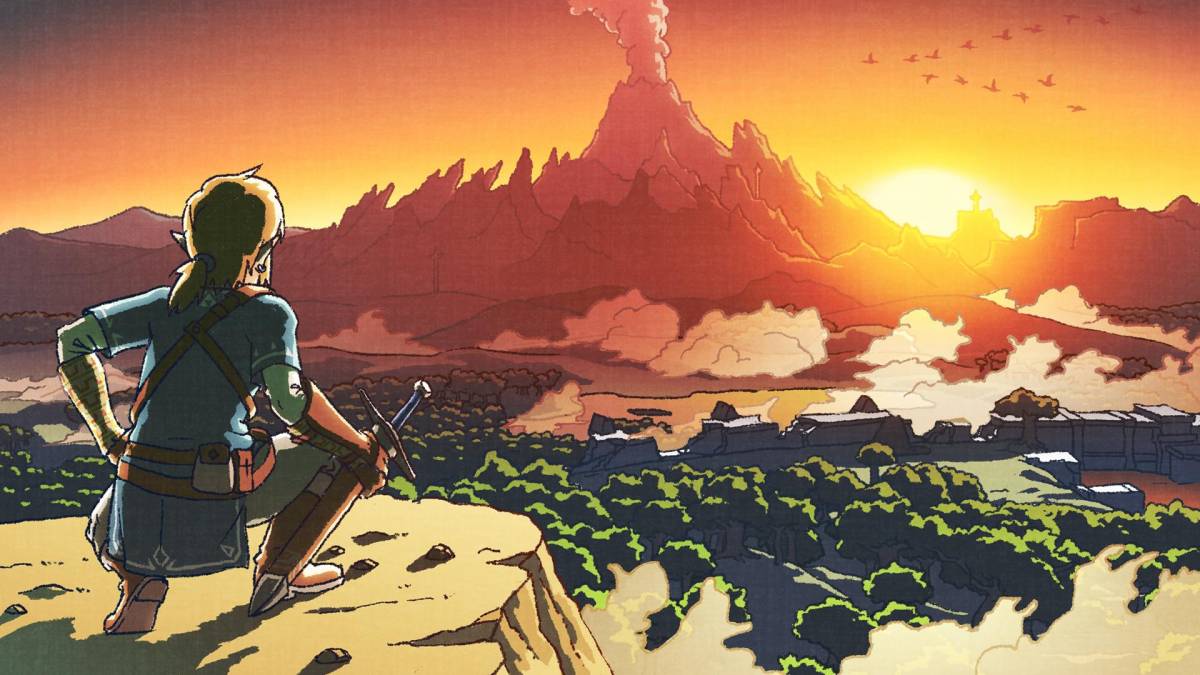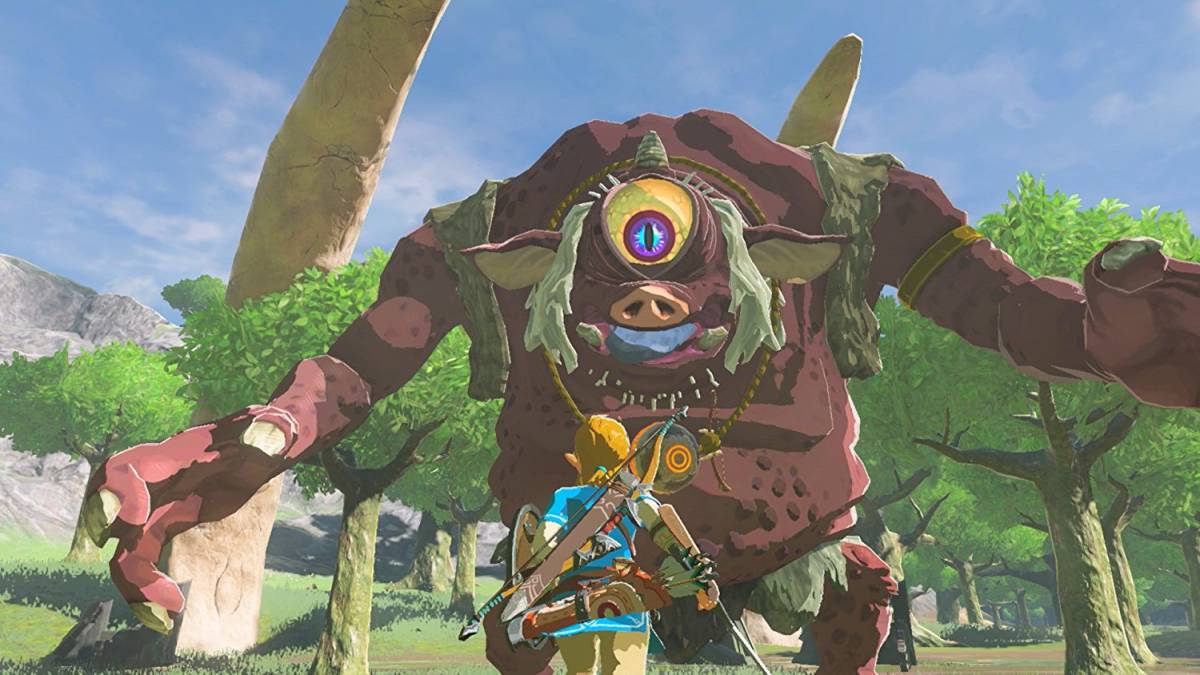I want to cast your minds back as little as just recently as renowned and brutally honest gaming critic Jim Sterling uploaded his review of “The Legend of Zelda: Breath of the Wild”. Despite a few snags he found, he gave the game a solid score of 7/10 and proceeded to carry on his day reviewing awful Steam games for his YouTube channel – only this day ended up not like any other day.
By the end of the weekend, Jim Sterling was hounded by a small collective of Zelda fans who could not bear to see the game lose its perfect scores of 90 percent’s and 9 out of 10’s. Cue Sterling’s Twitter and Facebook feeds being peppered with a small percentage of die-hard Zelda fans, wanting to lynch him for just doing his job and giving an honest opinion and Sterling having to defend his score.
I don’t want to talk in too much detail about the battle of wills between Mr Sterling and this bunch of ravenous Zelda fans as he himself put them to task on his recent episode of ‘The Jimqusition’. But I want to use this incident as a jump off point towards the alarming rise of the violent mindsets of hardcore fan bases and what really makes them tick. We can’t say this was an isolated incident, just last year several critics were under fire for reviews over Starfox Zero, a game that was barely playable at best. There was the incident Kotaku reported where Ben Lamoreux from Gamnesia received death threats, for doing his job and reporting that Final Fantasy XV would be held back for six weeks for some extra polish time. How did we exactly become a community that is perhaps a little too protective of our favourite franchise? The answer may be a little more psychological than just dismissing these incidents on a few basement dwellers with a superiority complex.

The Legend of Zelda, in my personal opinion, is overrated. I respect that it did at one point put Nintendo, as well as RPGs, on the map, but honestly, in 2017 I cannot understand how or why fans still cling onto this franchise. I certainly don’t understand why the game and its fans get a free pass when the franchise is called to task over the most convoluted of game mechanics or an incident occurs that riles up the small portion of fans and wish for the sacking or death upon the journalist. Like many a gamer, I’ve played through ‘A Link to the Past’. I tried in vain to be patient over ‘Ocarina of Time’ and, if I’m honest, the only Zelda game that made me think twice about the franchise was ‘Hyrule Warriors’. Despite all my criticisms, there is a method to my madness. The reason why I do not like the Zelda franchise is simple; I never grew up with them. Even though I’ve been on this planet since the peak of the NES days, watching the Zelda cartoons as a child and even possessing ‘Link’s Awakening’ on the classic Game Boy, I didn’t grow up in a Nintendo household, we were a Sega family and all my nostalgic memories stem from the Mega Drive/Genesis days. The keyword for this article is nostalgia and I want to explore with you just how powerful nostalgia is to the gaming community and my concerns as to why I feel it is getting out of hand.
It shouldn’t come to the surprise of anyone that nostalgia is a powerful drug for the brain. Everywhere we go, we are asked to indulge in our nostalgic side, whether it be music, politics or TV, it is everywhere and is alive and well on the internet. Very much like the T-1000 from Terminator 2, it can take the form of anything. The benefits to nostalgia are instant; studies have proven that it can fight boredom, loneliness and even help come to terms with our mortality. In theory, nostalgia should be good. Certain gaming cues and music take us back to when we were children and playing these franchises to death on warm Saturday spring evenings and with its 30 year history, Zelda is no exception to that rule. In fact, the franchise is so ingrained to the gamers’ conscious that it should be considered the standard of gaming nostalgia. Many a gamer will simply forgo a new IP for the ones they recognise, but why is that?
In 2014, a study conducted by Lasaleta, Sedikides & Vohs about the “Nostalgia Effect” consumers were asked to view advertisements that featured nostalgic experiences from the past and then to look at neutral advertisements that focused on making new memories. The willingness to pay for products was then tested by showing consumers a range of different product options, measuring on a scale how much the consumer was willing to pay for each one. It was found that consumers who viewed the nostalgia-induced advertisements were likely to pay more for the products than to simply create new memories with cheaper or newer products. This is an interesting statistic to point out as, in my opinion, that’s the whole point of Nintendo’s consumer base, churning out the same old game because the nostalgic value alone will sell by the shipload. I’m not going to call out Nintendo for such a marketing tactic, maybe a more cynical critic could, but if anything I find it commendable they can pull it off. Whether it is Zelda, Mario or Pokémon, there’s a fair chance Nintendo has your childhood for ransom and that’s fine.

But where does the line of nostalgia begin to blur? Where does the fan morph into the superfan that becomes into the overzealous fan? As previously mentioned, nostalgia is an amazing drug for the brain, but even the more standard of drugs can have deep psychological flaws. A paper posted by the University of Bath “When Bittersweet Turns Sour” explored this topic and concluded with a theory known as “habitual worrying”. In its simplest terms, the patient tends to worry more when they feel that their rose-tinted view of the world comes under attack, provoking a fight or flight dialogue in their head. This ties in neatly with the Zelda fans that tried to attack Jim Sterling, the rose-tint view comes from their nostalgic memories of the Hyrule Kingdom. Though this place doesn’t exist physically, Zelda fans manage to create a whole world for themselves, which, to a degree this is ok. The whole point of video games is to be immersed in a different world, be it Hyrule, Midgar or Vice City, the only crime Miyamoto has committed is creating his immersive world a little too well. Add the concept of ‘Murphy’s Law’ where the worst case scenario can happen and will happen if you keep thinking about it, we may have pinpointed how a small portion of the Zelda fanbase lost their collective brains over a measly 7/10 review. A score that basically tells gamers to buy the game, but maybe wait until it drops in price first.
So friends, the final question, what do we do and where do we go from here? Nostalgia in video games is on paper a good thing. In fact, I’m willing to stick my neck out and say it’s vital for video games to have the impact of nostalgia on their side. It prolongs franchises, leaves a mark and keeps gamers coming back and getting more than enough out of the £40 ($60) price tag we pay. Video games help us trigger certain physical memories, heck, every time I see mist on an early morning I have to whistle the map theme from Final Fantasy IX out of pure habit. But getting too enveloped in our nostalgic gaming memories and their respective worlds can and will disconnect us from the real world, forgetting the simple fact that people will have differing opinions. For example, I loved Hyrule Warriors, but that was mainly due to the fact I grew up playing and falling in love with Dynasty Warriors. It’s the same nostalgic trip, just in a Legend of Zelda skin and I applaud Nintendo for managing to achieve that because even after 30 years, they can still pull off something that could potentially bring in a fresher audience.
But, just merely taking these psychological findings on consumerism and accepting that as the norm for over-the- top fans and leting them play out their almost nauseating, toxic views and fantasies towards games journalism as a whole is not enough. We should, peacefully, remind the overzealous of the simple fact that the rose tinted fury they have towards games journalists, is not acceptable. Games journalism may not be a perfect system, but it’s the only one we have. Whilst some critics have big companies to back them, many others such as Jim Sterling are doing this because we’re passionate about sharing our opinions and views with you, the reader. You don’t have to agree with us and we wouldn’t want to force you either, but it’s hard to defend gaming as a viable source of mature entertainment as it is without scenarios like this playing in the background. As for forcing journalists to like a Zelda game or to give a perfect score? I must ask this:
When you go off on these tangents, do you see yourself as the hero? Do you see yourself as Link and you see the critic who may not like Zelda as one of the dungeon bosses? Because, the horrible truth to that mindset, is that the rest of us don’t see that. We see you more of a Gannon, a warthog, a human anthropomorphic hybrid that dwells in dungeons, wreaking havoc on a seemingly peaceful community, for no reason other than you can. Gaming has moved on from the dungeons.
Some of the coverage you find on Cultured Vultures contains affiliate links, which provide us with small commissions based on purchases made from visiting our site. We cover gaming news, movie reviews, wrestling and much more.



